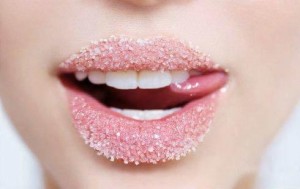Sugar Addiction and Alcoholism: The Brain
Contemporary research has shown that a high number of alcohol-dependent and other drug-dependent people have a preference for sweets, especially for foods with a high sucrose concentration. Moreover, both human and animal studies have demonstrated that in some brains the consumption of foods or drinks high in sugar causes the release of euphoric endorphins and dopamine within the reward center of the brain just like drugs of abuse. The neurobiological pathways of drug and “sugar addiction” involve similar parts and processes of the brain.
Sugar Addiction and Alcoholism: The Science
Craving, tolerance, and withdrawal have been documented in both human and animal studies. Furthermore, there seems to be similarity between sugar addiction and narcotic dependence in some people. It has also been observed that the children of alcoholic parents, particularly alcoholic fathers, are at greater risk to have a strong sweet preference, and this may an eating disorder for some. In the last two decades research has noted that specific genes may underlie the sweet preference in alcohol- and drug-dependent individuals, as well as in children alcoholic fathers.
Sugar Addiction and Alcoholism: Eating Disorders
Often times, alcoholics who get sober then develop food addiction. Research has shown that when people binge on carbs and sugar, and then restrict their intake, their bodies create a natural opioid. It is released in the body much like the chemicals released when people are doing other narcotics. According to Tennie McCarty, the founder and CEO of the eating disorder treatment center Shades of Hope, “Often we will see addicts switch off from one drug to another, whether that other drug is nicotine or sugar or other foods. Not everyone will take it to the depths that they have taken their primary addiction.”
A Real Thing: Sugar Addiction and Alcoholism and Drug Addiction
The PET and CAT scans of food addicts look almost identical to that of alcoholics and drug addicts, showing that sugar creates a physical addiction. In addition, sugar addicts carry the same D2 dopamine receptor, the gene that identifies addiction, as alcoholics and addicts. In those ways, biochemically, food addiction is just like addiction to drugs and alcohol. When we talk to recovering alcoholics and addicts who are finding their way to Overeaters Anonymous, we find a very common refrain: I started using sugar or food just like I was using alcohol.” And in some cases, sugar addiction can be just as harmful as alcoholism. McCarty mentions a man she treated whose addiction to sugar made him sicker than his alcoholism. Her patient was a football player and a Gulf War veteran, and in general, was a healthy, athletic man, but then he started drinking and became an alcoholic.
Sugar Addiction and Alcoholism: One in the Same
Many people who experience sugar addiction report that sugar helps them cope just like alcohol once did. People are searching for something to medicate their feelings and they will continue to do that until they look at what they are using over. It comes down to quality of life. Not everyone needs to use something. When people learn healthy coping methods to deal with the issues they can recover from all of their addictions.
Sources:


